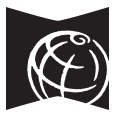Suzanne Hittman Collection of the Pike Place Market
Preview up to 100 items from this collection below. Explore the early history of the Pike Place Market through letters, receipts, plans, rental agreements and other documents related to the market’s business.
-
Letter from Frank Stier Goodwin to Arthur Goodwin regarding payment for his article on foreign markets, September 28, 1927
Letter from Frank Stier Goodwin thanking Arthur Goodwin for sending him 35 dollars in payment for his article on foreign markets, 'Through the Levant with a Market-Basket.'
Identifier: spl_sh_00093
Date: 1927-09-28
View this item -
Central Seattle' booklet, July 1927
July issue of 'Central Seattle,' a monthly publication containing information on local businesses, property changes and development in central Seattle.
Identifier: spl_sh_00022
Date: 1927-07-01
View this item -
-
-
Letter from Arthur Goodwin to George Kootros regarding the Municipal Market expansion, June 13, 1927
Letter from Arthur Goodwin to George Kootros advising him that William Peterson will be working with the tenants at the Municipal Market to prepare for the market expansion. Goodwin advises Kootros he can retain the present location of his fruit stall but that it may be necessary for him to move the bakery stall so a lunch counter can be added.
Identifier: spl_sh_00098
Date: 1927-06-13
View this item -
Letter from Arthur Goodwin to the Gillespie Auto Laundry asking about their car wash system, July 16, 1927
Letter from Arthur Goodwin to Gillespie Auto Laundry asking about the particulars of their car wash system. Goodwin expresses interest in installing such a system in the Pike Place Market auto park.
Identifier: spl_sh_00086
Date: 1927-07-16
View this item -
Note written on Crystal Palace Public Market letterhead, October 8, 1927
Note from unknown sender confirming receipt of what a appears to be a life insurance policy from Arthur Goodwin. The note is written on letterhead for the Crystal Palace Public Market in Tacoma. Members of the market management are listed in the top left corner including Arthur Goodwin, Chas. B. Hurley, Claud L. Hawley and J.C. Heitman.
Identifier: spl_sh_00113
Date: 1927-10-03
View this item -
Letter from Arthur Goodwin to Walter Soames regarding a dispute over private stalls at Pike Place Market, December 28, 1927
Letter from Arthur Goodwin to Walter Soames, President of the Associated Farmers, discussing changes made at Pike Place Market to distinguish the private stalls in the 'GG' section from other market stalls. Goodwin also explains 'We have put into effect regulations governing the sale of local and Califonia vegetables, prohibiting the sale of California vegetables of like kind when local vegetables are offered for sale on the market, and have co-operated with the Health Department in agreeing to cancel the lease of any tenant of the 'GG' section who violates the terms of the said leases.' Goodwin also addresses complaints against Joe Desimone, noting that they cannot force Desimone to leave the market for pricing his produce competitively.
Identifier: spl_sh_00130
Date: 1927-12-28
View this item -
Letter from William Crowley to Arthur Goodwin inquiring about public markets, April 29, 1927
Letter from William Crowley to Arthur Goodwin asking after the progress of his book on public markets. Crowley also asks Goodwin about the average salary paid to vendors in public markets and inquires if he is aware of Japanese farmers who would be interested in selling their goods at markets in California.
Identifier: spl_sh_00043
Date: 1927-04-29
View this item -
Letter from H.E. Carlson to Arthur Goodwin regarding improvements to the space near the Central Printing Company, November 26, 1927
Letter from H.E. Carlson to Arthur Goodwin describing the deteriorating surroundings around the Central Printing Company and asking for a reduction in rent so that they are able to stay in business.
Identifier: spl_sh_00134
Date: 1927-11-26
View this item

